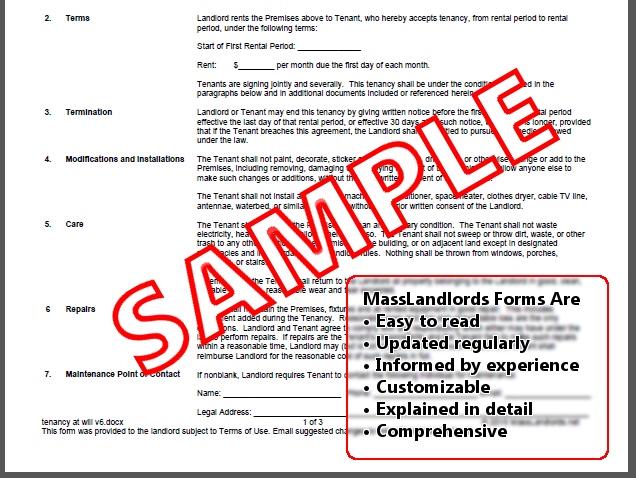Adverse Action Letter For CORI
By Kimberly Rau, MassLandlords, Inc.
Code 803 CMR 5.0 of Massachusetts law covers housing policy related to background checks, specifically where criminal offender record information (CORI) is used. Sub-section 14 has specific instructions for housing providers who use CORI or other criminal history information as part of their rental application screening process.

You can deny someone a tenancy based on their criminal history, but you must be careful about how you do that. (License: Joshua Coleman for Unsplash)
It is lawful for housing providers to utilize standard-access CORI reports as the final step in an application process. 803 CMR 5.04 says it must be the final step in the process. It makes sense to wait until then anyway, because background checks cost you money. This is only for the applicant (or applicants), and must be done with their permission. You may use open-access CORI reports for other household members if you choose to require them to fill out an iCORI authorization.
If you determine that your applicant is not suitable for your rental based on CORI or other criminal history information, you must inform them of the reason for your rejection. You must also allow them to see the report that influenced your decision. Our adverse action (rejection) CORI letter covers the points outlined in sub-section 14 to keep you in compliance with the law.
Assuming you’ve performed your criminal background checks in compliance with the law, your next step is to notify your applicant of your pending decision. You could do this over the phone, but as always, we strongly urge you to create a paper trail by sending our letter, either electronically or as a hard copy. The regulations allow you to inform applicants over the phone, but since you have to give them copies of other information as well (more on that below), it makes sense to do it all at once in writing.
If you go directly to CORI for your information, you must provide your renter with a full copy of their CORI report.
If you get data from a consumer reporting agency (CRA), you won’t get to see the full CORI, so you must send the applicant copies of their consumer report. You must also provide a copy of the document, “A Summary of Your Rights Under the Fair Credit Reporting Act,” which is published by the Federal Trade Commission and can be obtained from the CRA.
You must also give your applicant a copy of their CORI or other criminal history report, a copy of your CORI policy (if applicable), and identify which aspects of the report are the reason for your rejection.
Finally, your notification of potential adverse action must include information on how to appeal the decision. When using CORI, you must also provide information from the Department of Criminal Justice Information Services (DCJIS) about how to correct a criminal record.
Our letter is available to all current MassLandlords members. If you are unsure about how to apply this letter, or need more information on how to lawfully perform background checks, consult with your attorney before proceeding.
Revisions
- v2
- First version
To view this form, you must be logged-in and a member in good standing

MassLandlords is a nonprofit dedicated to helping owners rent their property. We try our best, but we can't guarantee these forms will always work. We provide legal information but never advice particular to your situation. Nothing on this site is meant to create an attorney-client relationship. We advise you consult with an attorney.




